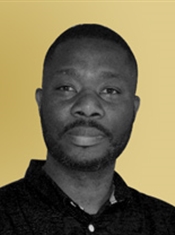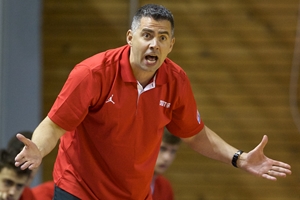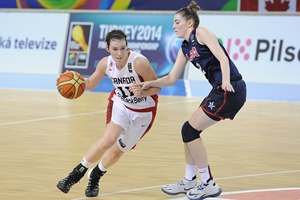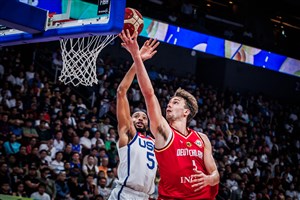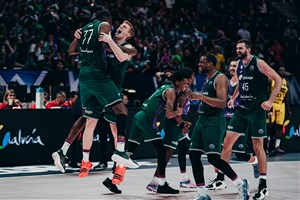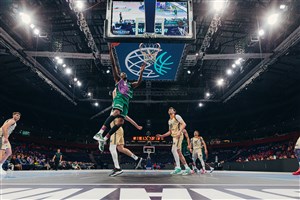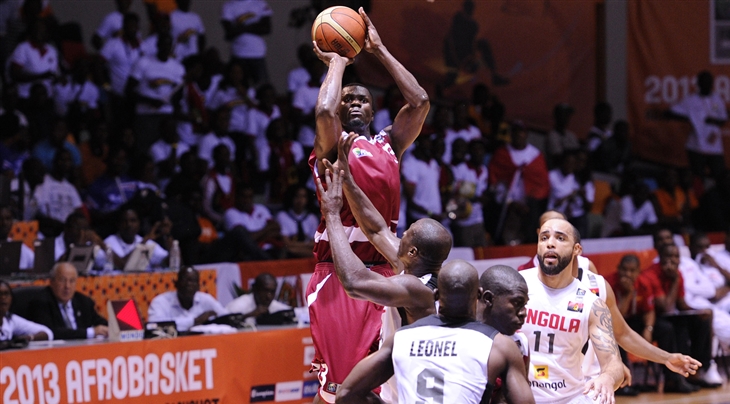
Central African Republic Basketball needs to re-emerge
SHEFFIELD (Julio Chitunda's African Message) - The Central African Republic (CAF) are making sure their participation at this year's AfroBasket in Tunisia pays off.
The Federation Centrafricaine de Basketball (CFBB) chairman Jean de Dieu Mageot and his board of directors have made many decisions since they were awarded a wild card invitation to join Africa's elite competition, suggesting that the former African champions are eager to re-emerge after years of stagnation.
CAF's basketball needs to re-emerge, that's a fact.
Two years ago, CAF finished 13th - their worst outcome ever - in the 16-team AfroBasket held in Abidjan, Cote d'Ivoire, and alarm bells were raised as a result.
Over the past few weeks, Mageot has held meetings with current and former Central African internationals such as Anicet Lavodrama, Romain Sato and Max Kouguere aiming to relaunch and take CAF's basketball to a relevant position in the African scene.
Afrobasket 2015 : Romain Sato avec les Fauves de la Centrafrique http://t.co/tBCvjqGUFe
— Africa Top Sports (@AfricaTopSports) June 4, 2015
Mageot even had a meeting with Catherine Samba-Panza, the country's interim President, who has reportedly pledged funding for the national team, which is currently holding a training camp in Gravelines, France.
However, some measures taken by CFBB could not go unnoticed.
First, it chose Aubin Goporo, a 1988 Olympian, to replace his older brother Frederic Goporo as the head coach of CAF's national team.
Shortly after Goporo's appointment, the man who is going coach his country for the first time as well as the CFBB announced a preliminary squad apparently more competitive than the team that fell short in the Africa Zone 4 qualifiers held in Gabon early this year.
More recently, on 7 July, CFBB increased their coaching staff with the arrival of Spanish-French Jose Ruiz, who has a vast experience in African basketball.
Ruiz, who coached both Mali national teams (men and women) in the continental championships two years ago, will serve as the General Manager of the team, which will take on hosts Tunisia, Nigeria and Uganda in Group A of the African championship, which will take place in the Tunisian cities of Nabeul and Tunis from 19 to 30 August.
But the question is whether or not CAF can succeed in a tournament, whose winner secures direct qualification for the 2016 Rio de Janeiro Olympics, while the teams that finish second and third will book their places in the FIBA Olympic Qualifying Tournament.
To answer this question and a few more questions, the newly-appointed Goporo - who helped his country win the African Championship's 1987 edition as a player and has built a coaching career stateside - seemed highly confident.
Talking to the CFBB Communications team, Goporo explained his basketball philosophy.
"Everywhere I coached, the foundation of my game is defense, rigour and aggressiveness," he said.
We need to understand that it is not easy to play for the Central African Republic because this is basketball nation. - Goporo
Despite CAF's recent unsuccessful campaigns, they remain among the top 10 African teams in the FIBA World Ranking Men.
When asked about his connection to CAF basketball - or lack of it - in recent years, Goporo pointed out that this was the first time the FCBB invited him to coach his beloved national team and he remained in contact with former national team colleagues.
"I was physically absent, but I kept in regular contact with African basketball in general and the basketball in the Central African Republic in particular," he said.
"In the era of the new technologies one does not need to be present in Africa to know what happens there.
"I also kept in contact with some actors of CAF basketball such as Mamadou Debate, Christian Gombe, Richard Bella, Anicet Lavodrama, Felicien Ngounion and Lucien Yeguete."
So many measures taken by Mageot and his team should translate into something exceptionally good, such as a place on the podium. And if that success happens, then I will surely change my view about CAF's continuing struggles over the past few years.
Julio Chitunda
FIBA
FIBA's columnists write on a wide range of topics relating to basketball that are of interest to them. The opinions they express are their own and in no way reflect those of FIBA.
FIBA takes no responsibility and gives no guarantees, warranties or representations, implied or otherwise, for the content or accuracy of the content and opinion expressed in the above article.
